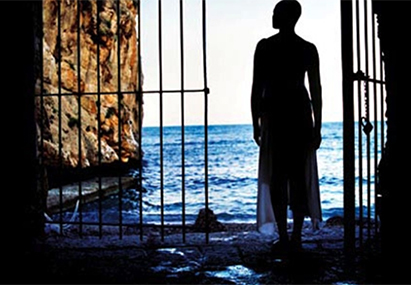Asylum Reconsidered
 |
On the Right to Sleep, Perchance to Dream
Wednesday 26 June 2013
|
with Professor Ranjana Khanna to launch the National Asylum Summit 2013
Podcast available HERE (mp3 format 30MB)
In 2005, the Red Cross (UK) commissioned an art exhibition entitled Insomnia for Refugee Week. The exhibition built on ideas put forward by philosopher Emmanuel Levinas, who was exploring the relationship between the inside and outside world - and what keeps us awake.
Inspired by this exploration, Professor Ranjana Khanna sees in insomnia an analogy for asylum seeking - a space where there is no security, rest, or chance for recuperation but rather, constant agitation and inner turmoil.
In her analysis of the asylum experience, Professor Khanna will reflect on the notion of hospitality, human-to-human and state-to-asylum seeker, and the philosophies that we may discern from the process of being hospitable - offering a haven and repose, but also, what we may discern in the denial of these things.
Ranjana KhannaRanjana Khanna is Margaret Taylor Smith Director of Women's Studies and Professor of English, Women's Studies and the Literature Program at Duke University. She works on Anglo- and Francophone Postcolonial theory and literature, and Film, Psychoanalysis, and Feminist theory. She has published widely on transnational feminism, psychoanalysis as well as postcolonial and feminist theory, literature and film. She is the author of Dark Continents: Psychoanalysis and Colonialism (Duke University Press, 2003) and Algeria Cuts: Women and Representation 1830 to the present (Stanford University Press, 2008.) She has published in journals such as Differences, Signs, Third Text, Diacritics, Screen, Art History, positions, SAQ, Feminist Theory, and Public Culture. Her current book manuscripts in progress are called: Asylum: The Concept and the Practice and Technologies of Unbelonging.
For more information on the National Asylum Summit, visit www.unisa.edu.au/asylum.
 |
 |
Co-presented by The Bob Hawke Prime Ministerial Centre and the Hawke Research Institute
Supported by:
 |
 |
While the views presented by speakers within the Hawke Centre public program are their own and are not necessarily those of either the University of South Australia or The Hawke Centre, they are presented in the interest of open debate and discussion in the community and reflect our themes of: strengthening our democracy - valuing our diversity - and building our future.
The copying and reproduction of any transcripts within the Hawke Centre public program is strictly forbidden without prior arrangements.


